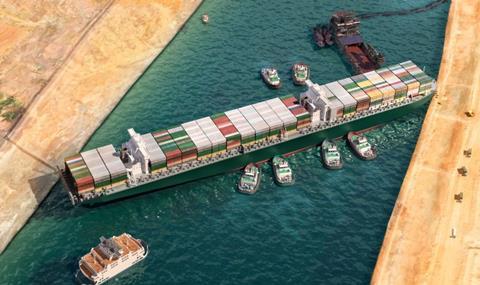
International delivery specialist ParcelHero is warning of delays to Amazon and other e-commerce orders following the log jam created in the Suez Canal by the stranded cargo ship, EverGiven, which was finally refloated yesterday (29 March).
David Jinks, ParcelHero’s head of consumer research, said: “The 200,000-tonne EverGiven was carrying 18,300 containers, but that is only the tip of the iceberg. A total of 367 vessels were waiting to pass through, and officials have said it will take at least three-and-a-half days to clear the traffic jam. About 12% of global trade passes through the canal each day.
"Many of the container ships delayed, including the EverGiven herself, are carrying e-commerce goods from Amazon, eBay and Alibaba.”
He pointed to Felixstowe-based Seaport Freight Services which has 20 containers of goods stranded on the ship and Seabay International Freight Forwarding, both of which handle goods destined to Amazon customers and major brands such as IKEA.
"We can take it as given that the beaching of the EverGiven will create long-term delays,” Jinks continued, adding that further delays will be created by shipments planning to use the Suez Canal being already diverted around the Horn of Africa, adding another seven days to their journey to the UK.
Logistics UK’s public policy general manager Alex Veitch echoed Jinks’ concerns.
He called for the log jam of ships to be cleared without delay.
“With more than 300 ships stuck behind the ship, waiting to travel through the canal, the impact of the incident will continue to be felt around the world for some weeks.
“Any delay to deliveries from the Far East will mean delays in picking up goods from UK ports for export, as well as slowing down deliveries into the UK’s supply chain. Goods affected by the delays will include seasonal stock for UK retailers, so gaps may start to appear unless the situation is resolved quickly.
“It is now vitally important to clear the 'traffic jam' of ships delayed in the Canal as quickly as possible, to restart the supply chain and minimise any disruption. However, the clearance of so many ships at one time could cause congestion at ports along the supply chain, with a resultant slowdown in port productivity.”














